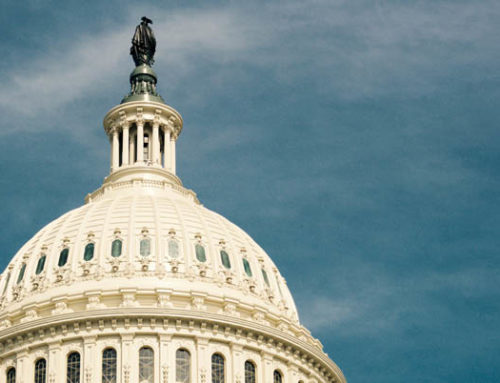This week it became clearer that the light at the end of the tunnel might in fact be the end of the 84th Legislative Session, and not a special session headed directly at our summer plans. With budget negotiations and tax relief proposal agreements now headed to the Senate and House floors for final ratification, the most important issues of this legislative session seem to be agreed upon by leadership and each chambers designees. Barring any last minute hiccups, the 84th Texas Legislative Session should be headed for the history books.
The next several days will mark the final legislative deadlines for the session. Saturday, May 23rd, is the last day for Senate Bills to be heard and reported out of a House Committee. Sunday, May 24th, is the deadline for Senate Bills to be placed on a calendar for floor consideration. Tuesday, May 26th, is the last day for the House to consider Senate Bills on second reading. Wednesday, May 27th, is the last day for the House to consider Senate Bills on third reading and the Senate to consider all bills on second or third reading.
Senate and House Come to Agreement on Key Legislative Items
This past Thursday, Senate and House Conferees reached an agreement on tax relief and a biennial budget.
Tax Relief: The Senate and House Conferees hammered out a final resolution to their tax relief proposals. They agreed to a $3.8 billion property/business tax cut.
The plan includes a reduction in school property taxes worth about $125 a year to the average homeowner by raising the property tax exemption by 10,000 (which is currently 15,000), if voters approve a constitutional amendment in November, and a 25 percent, across-the board cut in business-franchise or “margins” tax rates.
Budget: Thursday, the two lead budget negotiators from each chamber revealed the agreed upon budget for the 2016-2017 biennium. In this priority piece of legislation, there was a $1.5 billion increase in school funding, increases in funding to help repair decaying state-owned buildings, parks and insolvent pension funds, extra spending on retired teachers’ health care and the main pension plan for state workers, an 8 percent pay raise for prison guards and an extra $100 million of matching funds to boost research at eight “emerging” state universities.
In addition, negotiators agreed to spend $800 million over the next two years — just $11 million less than the Senate wanted, though far more than the $565 million in the House’s budget.
In regards to transportation, the budget would add about $3.6 billion more for transportation over the next two years. Only $1.2 billion of that is a new action – from ending so-called “diversions” of gasoline tax and vehicle registration fees to help pay for DPS. The rest of the money was approved by voters in a constitutional amendment last November — $2.4 billion from oil and gas production taxes that otherwise would have gone into the rainy day fund.
Pre-K Funding: The House voted unanimously Thursday to accept all the changes the Senate made to House Bill 4 earlier this month – including capping funding for the legislation at $130 million. The legislation will distribute up to $130 million worth of grants to school districts as long as they meet certain quality requirements like having certified teachers and using a state-approved curriculum.
Abbott Signs the Denton fracking Bill
HB 40, which has now been signed into law, reasserts the state’s control over oil and gas drilling. It prohibits cities from banning hydraulic fracturing, giving them only limited control over the oil and gas process within their city limits.
The legislation came as a result of Denton residents approving a ban on hydraulic fracturing in November, being the first city to do so.
WHAT TO LOOK FOR NEXT
- The House adjourned until 1:00 p.m., Sunday, May 24, 2015.
- The Senate adjourned until 6:00 p.m., Sunday, May 24, 2015.






